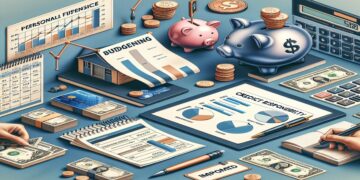
How to declare investments on income tax
This article guides readers through the essential steps of reporting investments on income tax, emphasizing the importance of accurate documentation, understanding capital gains and losses, and utilizing appropriate tax forms. It highlights strategies for maximizing deductions, ultimately empowering investors to navigate tax requirements confidently while optimizing financial outcomes.

How Indebtedness Affects Your Financial Health
Indebtedness profoundly impacts financial health, affecting credit scores, budgeting, and mental well-being. Understanding these effects is crucial for proactive debt management, promoting financial stability and personal well-being. Emphasizing awareness and strategic planning can empower individuals to regain control and pave the way for a prosperous future.

What are the best investments for beginners
Embarking on your investment journey can feel overwhelming, but understanding various options—such as stocks, bonds, mutual funds, and real estate—can simplify the process. Focus on your financial goals and risk tolerance, diversify your portfolio, and maintain a long-term perspective for successful investment growth.

Personal finance tips to avoid credit card debt
Credit card debt can escalate quickly, but managing it effectively is possible. Key strategies include creating a budget, paying more than the minimum balance, limiting credit cards, and building an emergency fund. Educating yourself on interest rates and adopting mindful spending habits will empower you to achieve financial stability.

The role of fintechs in the transformation of financial services
Fintech companies are revolutionizing financial services by leveraging technology to enhance customer experiences and challenge traditional banking models. They offer innovative solutions like digital banking, peer-to-peer lending, mobile payments, and personalized investment platforms, fostering inclusivity and accessibility while paving the way for a more efficient financial ecosystem.

How to Build a Low-Risk Emergency Fund
Establishing a low-risk emergency fund is crucial for financial stability. It protects against unexpected expenses and reduces stress. Key steps include setting a target savings amount, selecting suitable accounts, and making regular contributions. Maintaining this fund requires periodic reassessment and disciplined usage to ensure it remains an effective safety net.

Investor Psychology: How to Avoid Emotional Decisions in the Market
Understanding Investor Psychology Every investor faces the challenge of managing emotions when making financial decisions. Emotions like fear and greed can cloud judgment, leading to impulsive choices that may result in significant losses. For instance, during a market downturn, an anxious investor might hastily sell their stocks to avoid further losses, potentially locking in a […]

How Compound Interest Can Multiply Your Wealth
Understanding the Power of Compound Interest Have you ever wondered how some people seem to build wealth effortlessly? The answer often lies in the magic of compound interest. This financial concept can significantly boost your savings over time. Here’s a deeper look at its transformative power: What is Compound Interest? At its core, compound interest […]

Day Trading Strategies for Beginners in the Financial Market
Understanding Day Trading: A Comprehensive Guide for Beginners Day trading involves buying and selling financial instruments within the same day, capitalizing on short-term market movements. While the ultimate goal is to achieve profit by buying low and selling high, the reality is that day trading requires much more than just a basic understanding of these […]

How to Leverage Economic Cycles to Maximize Returns
The Importance of Economic Cycles for Investors Every investor faces the challenge of navigating through various economic cycles. Recognizing these cycles can significantly impact your investment decisions and potential returns. By understanding the phases of the economy, you can position yourself to capitalize on market opportunities and minimize risks. This knowledge is not just useful […]